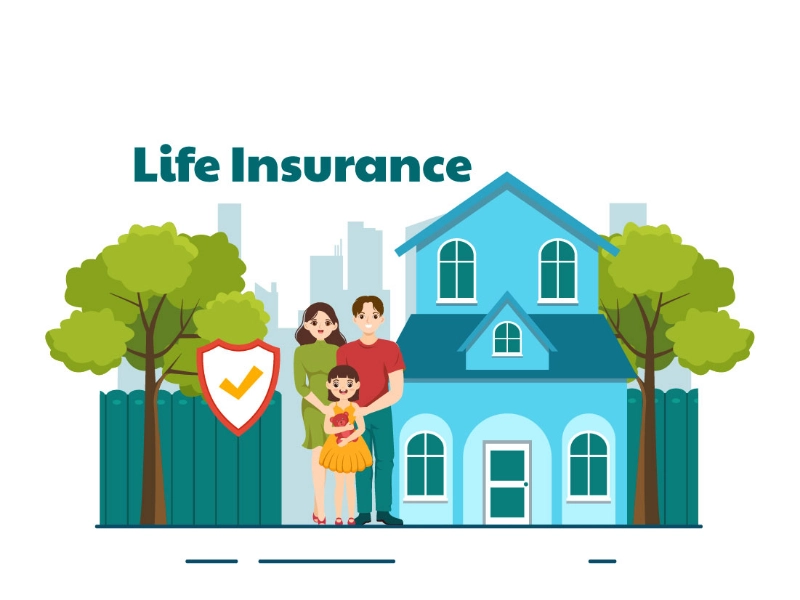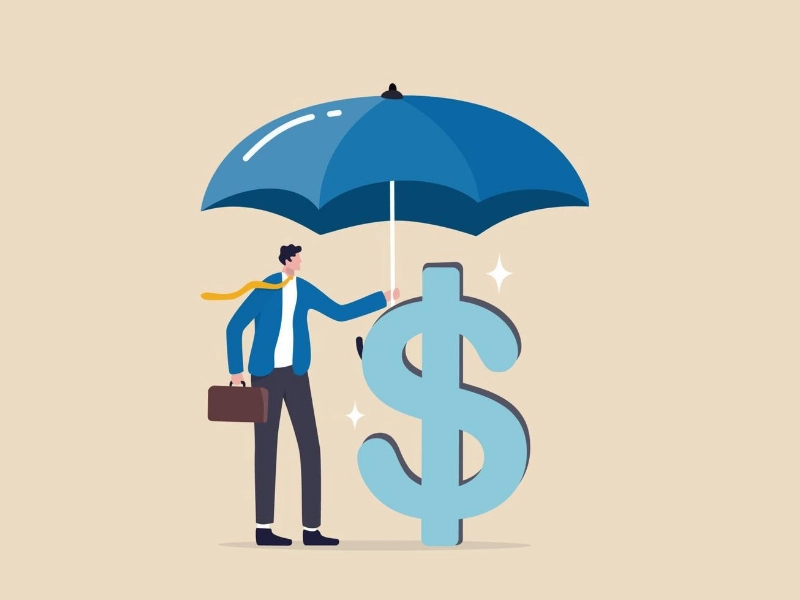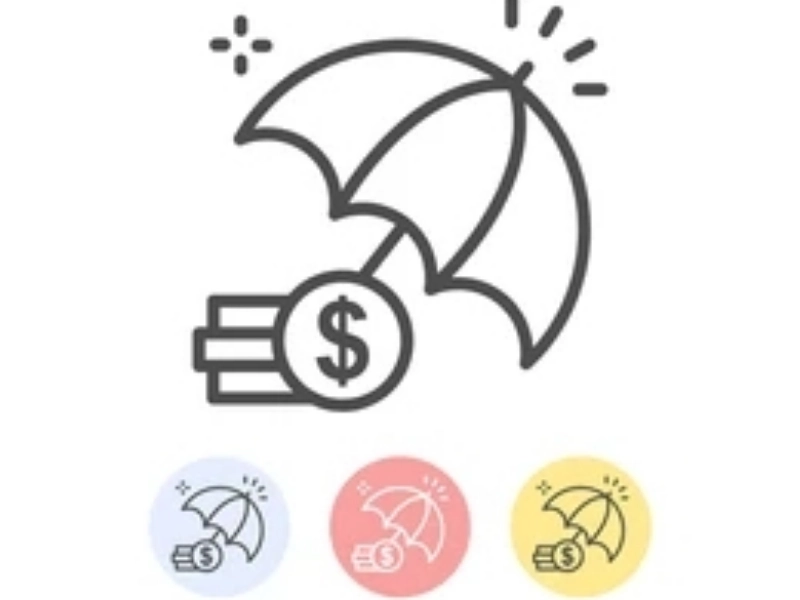Risk is priced via the premiums that private insurance firms charge; the higher the cost, the more at risk a property is. In order to cover catastrophic losses, insurers can also purchase reinsurance. Home prices would drop and mortgage lenders would stop lending if homeowner's insurance costs escalate. Both the local economy and communities would be harmed by that.
 Risk is monetized by private insurance businesses through premiums that offset future losses. Consequently, insurers may decide not to provide coverage or try to increase premiums if they determine that the risk of future damage resulting from climate change exceeds expected profits.
Global behemoths known as reinsurers, who bear the same catastrophic loss risk as traditional insurance companies, are retreating from some areas as well, creating "localized protection gaps." Consequently, homeowners, who largely rely on their homes as an investment in their wealth, are at risk for their financial stability. The economy is affected in a number of ways by this, including mortgage lending and home prices.
Risk is monetized by private insurance businesses through premiums that offset future losses. Consequently, insurers may decide not to provide coverage or try to increase premiums if they determine that the risk of future damage resulting from climate change exceeds expected profits.
Global behemoths known as reinsurers, who bear the same catastrophic loss risk as traditional insurance companies, are retreating from some areas as well, creating "localized protection gaps." Consequently, homeowners, who largely rely on their homes as an investment in their wealth, are at risk for their financial stability. The economy is affected in a number of ways by this, including mortgage lending and home prices.
 The global economy is bearing a heavy financial burden from floods and other climate-related calamities that harm homes, businesses, and governments alike. In addition, they are raising food costs, uprooting households and causing disruptions to economies and livelihoods, and spreading diseases that are vector- and water-borne.
Insurance firms ought to put their resilience to the test by modeling several climate scenarios and provide incentives to their clients to adapt and construct sustainably. Additionally, they ought to decline to fund and insure fossil fuel-related initiatives.
Insurance regulators ought to "blueline," or look into cases where insurance coverage is either excessively costly or unavailable as a result of climate change. In states devastated by wildfires and hurricanes, they could ask insurers for information.
The global economy is bearing a heavy financial burden from floods and other climate-related calamities that harm homes, businesses, and governments alike. In addition, they are raising food costs, uprooting households and causing disruptions to economies and livelihoods, and spreading diseases that are vector- and water-borne.
Insurance firms ought to put their resilience to the test by modeling several climate scenarios and provide incentives to their clients to adapt and construct sustainably. Additionally, they ought to decline to fund and insure fossil fuel-related initiatives.
Insurance regulators ought to "blueline," or look into cases where insurance coverage is either excessively costly or unavailable as a result of climate change. In states devastated by wildfires and hurricanes, they could ask insurers for information.
 The increasing frequency and intensity of climate-related disasters can put a strain on regional economies and make it more difficult for individuals to get insurance. Additionally, it may make certain assets uninsurable or unfinancially feasible for insurers.
It is imperative for insurance companies to integrate climate risk into their investment decisions, business strategies, and governance structures. In their public filings, businesses ought to mention the dangers that they are exposed to.
Mortgage lenders may reject loans and homeowners may leave their houses if homeowner's insurance becomes unaffordable or nonexistent. Property tax revenues, which support fire departments and other municipal services, would suffer from such abandonment. This would be similar to the practice of mortgage and banking organizations "redlining" neighborhoods they thought were less attractive in the past.
The increasing frequency and intensity of climate-related disasters can put a strain on regional economies and make it more difficult for individuals to get insurance. Additionally, it may make certain assets uninsurable or unfinancially feasible for insurers.
It is imperative for insurance companies to integrate climate risk into their investment decisions, business strategies, and governance structures. In their public filings, businesses ought to mention the dangers that they are exposed to.
Mortgage lenders may reject loans and homeowners may leave their houses if homeowner's insurance becomes unaffordable or nonexistent. Property tax revenues, which support fire departments and other municipal services, would suffer from such abandonment. This would be similar to the practice of mortgage and banking organizations "redlining" neighborhoods they thought were less attractive in the past.
 Climate change is being used by several insurance companies as an excuse to leave certain markets or increase rates. The practice known as "bluelining" has the potential to disproportionately hurt low-income groups residing in areas that are vulnerable to climate change.
In addition to causing property damage, wildfires have a knock-on effect that affects the economy years later by forcing people from their homes and severely damaging companies. They can harm nearby water resources and worsen the state of the air.
State insurance regulators can promote risk-reduction best practices, such raising dwellings to prevent floods and cutting back on dry vegetation to lessen the chance of a fire. Additionally, they have the ability to advance predictive models that assist insurance companies in projecting losses and adjusting prices appropriately.
Climate change is being used by several insurance companies as an excuse to leave certain markets or increase rates. The practice known as "bluelining" has the potential to disproportionately hurt low-income groups residing in areas that are vulnerable to climate change.
In addition to causing property damage, wildfires have a knock-on effect that affects the economy years later by forcing people from their homes and severely damaging companies. They can harm nearby water resources and worsen the state of the air.
State insurance regulators can promote risk-reduction best practices, such raising dwellings to prevent floods and cutting back on dry vegetation to lessen the chance of a fire. Additionally, they have the ability to advance predictive models that assist insurance companies in projecting losses and adjusting prices appropriately.
 State and federal regulatory bodies should play a bigger role in stabilizing markets and safeguarding consumers as the insurance business faces escalating climate concerns. They ought to mandate that insurers gather more thorough data on the financial damages brought on by climate change and use that data to guide their judgments about what kind of coverage to provide and at what cost.
It should be mandatory for insurers to perform scenario analysis on the risks associated with climate change as part of their own risk and solvency assessments (ORSA). Insurers can use this information to assess their ability to fulfill policyholder expectations in the medium- to long-term. In addition, the data can assist insurers in getting ready for greater exposure by highlighting specific protection gaps.
State and federal regulatory bodies should play a bigger role in stabilizing markets and safeguarding consumers as the insurance business faces escalating climate concerns. They ought to mandate that insurers gather more thorough data on the financial damages brought on by climate change and use that data to guide their judgments about what kind of coverage to provide and at what cost.
It should be mandatory for insurers to perform scenario analysis on the risks associated with climate change as part of their own risk and solvency assessments (ORSA). Insurers can use this information to assess their ability to fulfill policyholder expectations in the medium- to long-term. In addition, the data can assist insurers in getting ready for greater exposure by highlighting specific protection gaps.
 Climate change has a complicated effect on economic losses linked to insurance. However, a number of well-known insurers have begun to quantify these risks, take them into account when making business choices, and make them public in filings.
These businesses ought to inspire others to take note of their example. By assisting in the shift to net-zero energy systems and reducing risk for the populations most affected by climate change, they can boost the economy.
Together with preventing "bluelining," which is the practice of insurers raising rates or removing services from regions deemed to be at higher risk, insurers and reinsurers should collaborate with local communities to construct and re-insure homes that are resilient to weather disasters brought on by climate change. Investing in renewable energy sources and other technologies that lessen the need for conventional insurance products might also be encouraged by them.
Climate change has a complicated effect on economic losses linked to insurance. However, a number of well-known insurers have begun to quantify these risks, take them into account when making business choices, and make them public in filings.
These businesses ought to inspire others to take note of their example. By assisting in the shift to net-zero energy systems and reducing risk for the populations most affected by climate change, they can boost the economy.
Together with preventing "bluelining," which is the practice of insurers raising rates or removing services from regions deemed to be at higher risk, insurers and reinsurers should collaborate with local communities to construct and re-insure homes that are resilient to weather disasters brought on by climate change. Investing in renewable energy sources and other technologies that lessen the need for conventional insurance products might also be encouraged by them.